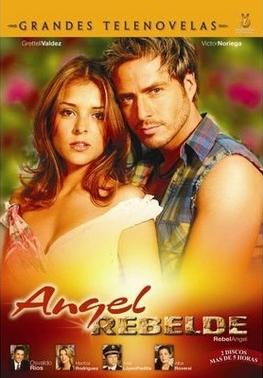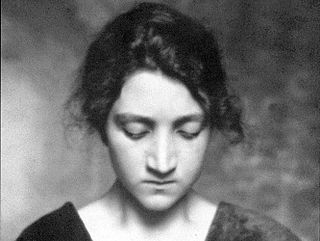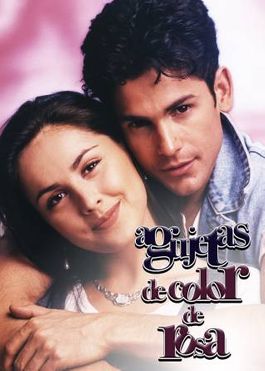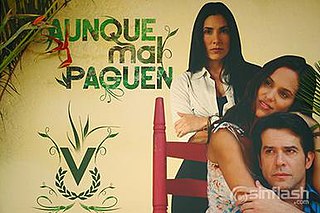Plot
The novel is told through the first-person narration of Celaya "Lala" Reyes and is divided into three parts. First is Part One: Recuerdo de Acapulco. The three Reyes brothers, Inocencio (Lala’s father), Uncle Fat-Face (Federico), and Uncle Baby (Armando), and their families, drive to Mexico City to visit the Awful Grandmother (Soledad) and the Little Grandfather (Narciso), as well as their younger sister Aunty Light-Skin (Norma) and her daughter, Antonieta Araceli. During their stay there, Celaya grows attached to Candelaria, the daughter of the washerwoman Amparo, but is forbidden from interacting with her. During Inocencio’s birthday party, the ceiling of the dining room collapses and the family fights over who did it. Uncle Fat-Face and Uncle Baby angrily leave with their families. The remaining family decide to go to Acapulco, including Candelaria, who creates a palm leaf rose for Lala, which falls into the ocean during a boat ride. Lala then sees Soledad tell Zoila something on the deck, though it isn’t clear what. On the drive home, after Lala mentions Candelaria’s flower, Zoila hysterically laughs, accuses Inocencio of lying to her, then proceeds to physically and verbally attack him. She runs out of the car and into the plaza. The rest of the family follow her, as her and Inocencio get into a heated public fight. Soledad interjects, urging Inocencio to leave Zoila, saying, “Wives come and go, but mothers, you only have one”. Zoila and Soledad then insult one another and present Inocencio with an ultimatum: he must choose one or the other. He chooses Zoila, driving her and their children back home and arranging for Señor Vidaurri to pick up his mother in Acapulco.
Second is Part Two: When I Was Dirt, which chronicles how Soledad and Narciso became the Awful Grandmother and the Little Grandfather, with Soledad herself frequently interrupting Lala's story to correct or berate her. Soledad was born between 1905 and 1906 to famous shawl makers, Ambrosio and Guillermina Reyes in Santa Maria Del Rio, San Luis Potosi. Guillermina passes away when Soledad is just a child, leaving only an unfinished caramelo rebozo, Soledad’s most prized possession. Ambrosio remarries and his new wife convinces him to send Soledad away to live in the capital with her Aunty Fina and her many children. There, Soledad works as a house servant, neglected by her aunt and sexually abused by her Uncle Pio. Soledad meets Narciso when he comes to the house to pay Aunty Fina for the week’s laundry. She has an emotional breakdown, confiding in him about her life and current circumstances. He offers her to work at his house so she moves in with him and his parents, Eleuterio and Regina Reyes. The Mexican Revolution begins shortly after and during the Ten Tragic Days in 1913, Narciso has three of his ribs surgically removed after suffering a collapsed lung caused by fear when he was nearly killed by two soldiers on his way home. Later, in 1914, his mother sends him to live with his Uncle Old and his cousins in Chicago to escape the war. There, he falls in love with a young Josephine Baker, an African American, but when he informs his father of his plans to marry her, the shock of the news triggers a cerebral embolism which kills him. Narciso returns home for the funeral, but his father miraculously comes back from the dead, having only suffered a cataleptic attack, which leaves him partially paralyzed and mute. Upon reuniting with Soledad, the two begin a sexual relationship. Soledad becomes pregnant and Narciso plans to run away. Regina organizes an elaborate farewell supper for Narciso, in which Eleuterio and Soledad are both ignored by the guests. Enraged by their avarice and apathy, Eleuterio destroys Regina’s merchandise, grabs Soledad, and speaks for the only time in his life, shouting, “We are not dogs!” This prompts Narciso to marry Soledad and they move to Oaxaca.
In Tehuantepec, Narcisco falls in love with Exaltación Henestrosa, a local merchant, and begins an extramarital affair with her, but she runs away with Panfila Palafox, a female singer from the traveling Circus Garabaldi. Soledad, devastated by her husband’s infidelity, asks a tamal vendor for advice, who counsels her to fall in love again, which she does with her firstborn son, Inocencio. She then has three more children, but doesn’t love any of them quite like her son. Her sons grow up and move to the United States. In 1945, Inocencio is arrested at a riot at a soccer match and meets ventriloquist Wenceslao Moreno in the Chicago police station. To avoid jail time and get his papers, Wenceslao convinces him to enlist and Inocencio is sent off to fight in World War 2. Zoila, who was recently rejected by her lover, Enrique Aragon, meets Inocencio at a dance. The two fall in love and eventually marry. When Celaya is born, Inocencio introduces her to Soledad, who is dismayed that she is now longer “his queen”.
Lastly is Part Three: The Eagle and the Serpent, or My Mother and My Father, which takes place seven years after Part One. Narciso crashed into a truck while driving and died of a heart attack. After his funeral, Soledad sells the house on Destiny Street and gives the money to Inocencio and his family, angering Uncle Fat-Face and Uncle Baby. Aunty-Light Skin tells Celaya how she met Antonieta Araceli’s father: a riot ensued at El Blanquita Theater when the audience followed Tongolele backstage. Norma, who was trying to get her autograph, was pushed into a Cadillac with Tongolele and some of her friends. When Tongolele noticed her and asked her who she was, Antonieta Aracelia’s father covered for her and said she was with him. The two began a relationship and were soon married by the court, which Soledad discredited on account of him already having been married twice and in a church. The two began to argue frequently, and one night, Norma discovered her husband had been unfaithful. He left to go live with his family in Jalisco, and after some time, she tried calling him to forgive him but was turned down by his family. She finally contacted him while he was at a hotel and it is heavily implied that he was still cheating on her. She divorced him shortly afterward and returned to live with her parents. She then gave birth to their daughter and raised her on her own.
Soledad comes to live with Innocencio and his family in Chicago, but struggles adjusting to city life. They purchase a new house and move to San Antonio, Texas. Celaya’s relationship with her mother sours and she attends the local Catholic high school, Immaculate Conception, where she befriends Viviana “Viva” Ozuna, a provocative female classmate and is bullied by the other schoolgirls. Now 14, Celaya begins to sexually, mentally, and emotionally mature. Soledad falls ill, and as she carries her upstairs, Zoila contemplates killing her, but refrains from doing so when she notices Soledad’s eye water. Soledad later succumbs to her illness and dies. After her death, Celaya is regularly haunted by her grandmother. She meets Ernie “Ernesto” Calderon, one of her brother’s friends, and falls in love with him. The two rent a hotel room and sleep together. Celaya’s plan is to become pregnant so her parents will give Ernie and her their blessing to marry. But when Ernie returns the next morning from mass, he changes his mind, out of guilt and loyalty to his mother. Celaya shamefully returns home to her heartbroken father.
The family move back to Chicago and Inocencio is hospitalized in the ICU after a heart attack. Before visiting him, Zoila informs Celaya of what it was Soledad told her on the boat deck all those years ago: Candelaria is Celaya’s illegitimate half-sister. She was born before Zoila and Inocencio got married and everybody knew but nobody told her. Soledad then deliberately hired Amparo and Candelaria to live with her while Zoila and her family were visiting to pressure Zoila into divorcing Inocencio, but she refused. Celaya then sees an apparition of Soledad at Inocencio’s bedside, preparing to reunite with her son in the afterlife. Celaya grabs her father and insults Soledad, to which she replies, “Well, that’s fine, because I’m you”. Soledad tearfully confesses to Celaya that she can’t move on yet because she hasn’t made amends with all the people she’s hurt. She asks Celaya to tell her story and she agrees, in exchange for Inocencio’s life. Soledad begins, leading to the events of Part Two. True to her word, Inocencio wakes up and recovers. After he returns home, Inocencio and Zoila celebrate their 30th wedding anniversary. At the party, Celaya realizes she has "become" Soledad for her love of Inocencio and resolves to “make room in her heart” for Soledad as well. Inocencio dances with Celaya and tells that Soledad conceived him out of wedlock and Narciso planned on abandoning her until Eleuterio convinced him otherwise. Inocencio swears Celaya to secrecy and she agrees, after revealing all of her family’s secrets to the readers.














